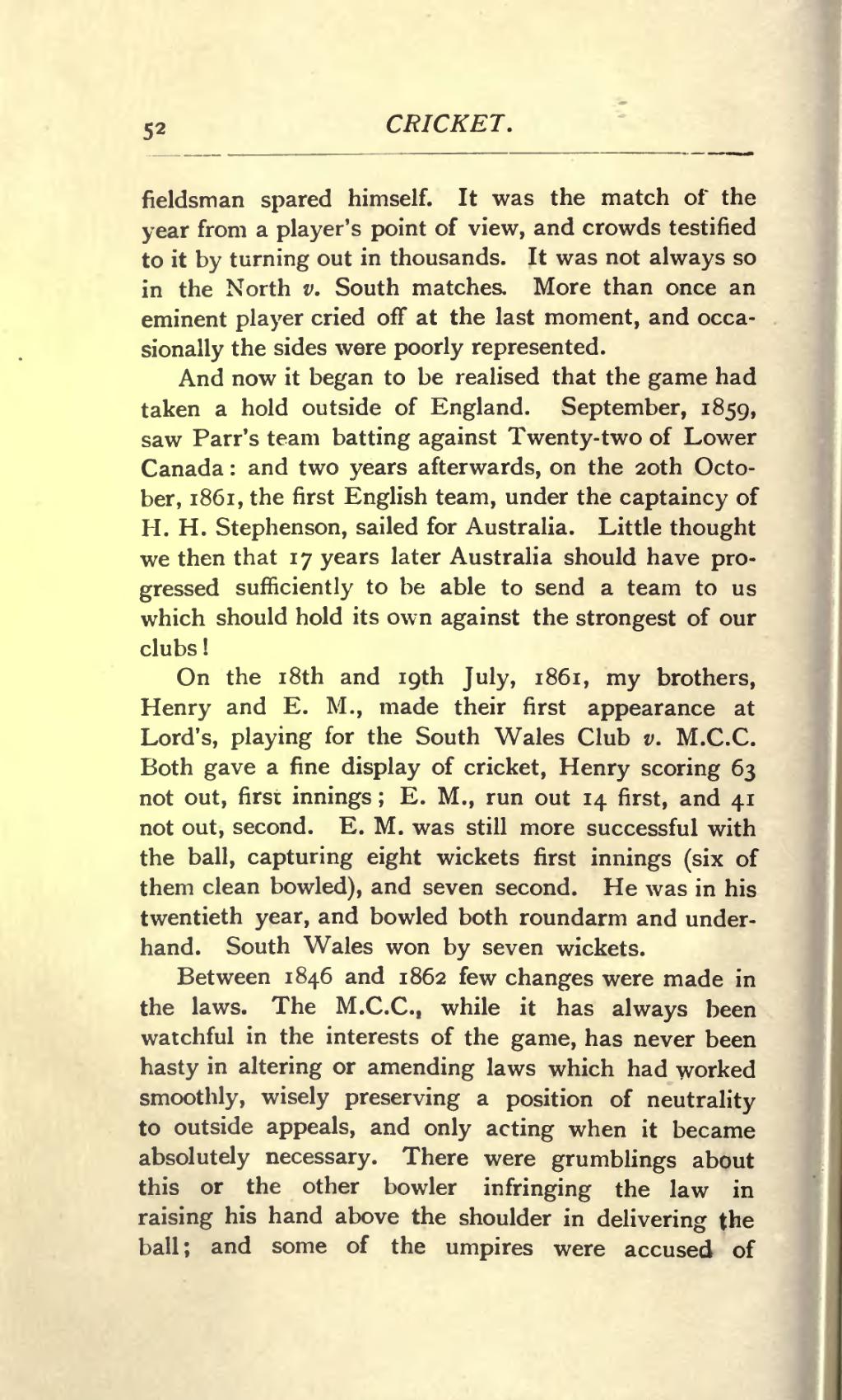fieldsman spared himself. It was the match of the year from a player's point of view, and crowds testified to it by turning out in thousands. It was not always so in the North v. South matches. More than once an eminent player cried off at the last moment, and occasionally the sides were poorly represented.
And now it began to be realised that the game had taken a hold outside of England. September, 1859, saw Parr's team batting against Twenty-two of Lower Canada: and two years afterwards, on the 20th October, 1861, the first English team, under the captaincy of H. H. Stephenson, sailed for Australia. Little thought we then that 17 years later Australia should have progressed sufficiently to be able to send a team to us which should hold its own against the strongest of our clubs!
On the 18th and 19th July, 1861, my brothers, Henry and E. M., made their first appearance at Lord's, playing for the South Wales Club v. M.C.C. Both gave a fine display of cricket, Henry scoring 63 not out, first innings; E. M., run out 14 first, and 41 not out, second. E. M. was still more successful with the ball, capturing eight wickets first innings (six of them clean bowled), and seven second. He was in his twentieth year, and bowled both roundarm and underhand. South Wales won by seven wickets.
Between 1846 and 1862 few changes were made in the laws. The M.C.C., while it has always been watchful in the interests of the game, has never been hasty in altering or amending laws which had worked smoothly, wisely preserving a position of neutrality to outside appeals, and only acting when it became absolutely necessary. There were grumblings about this or the other bowler infringing the law in raising his hand above the shoulder in delivering the ball; and some of the umpires were accused of
